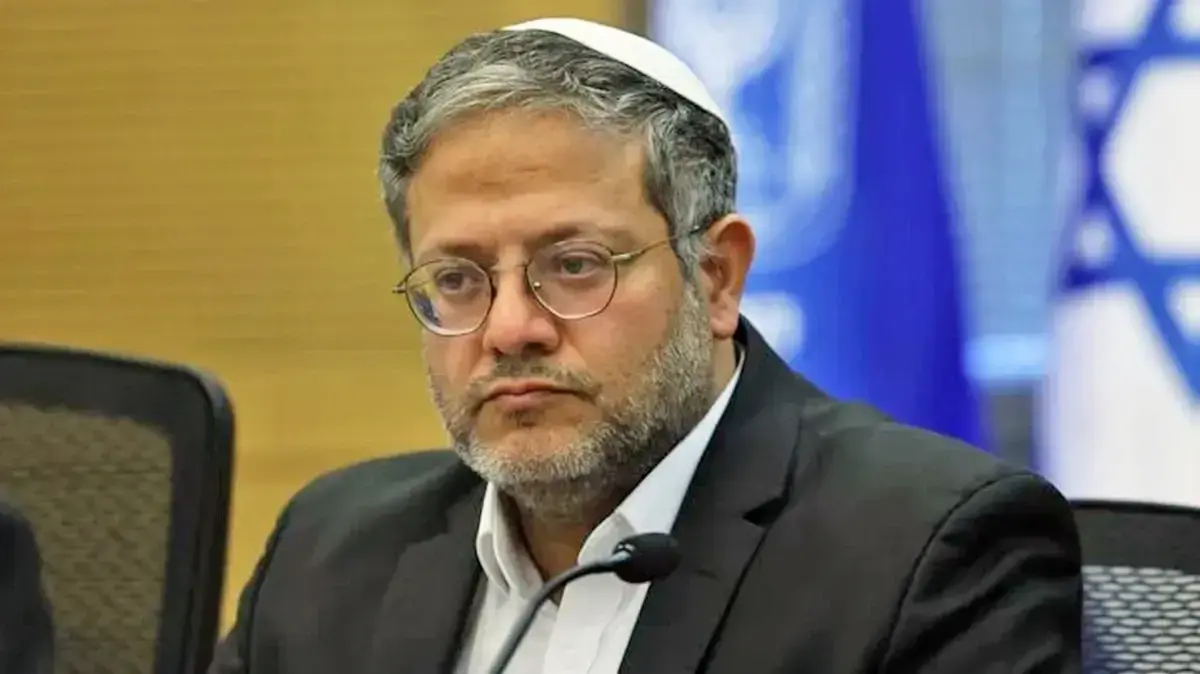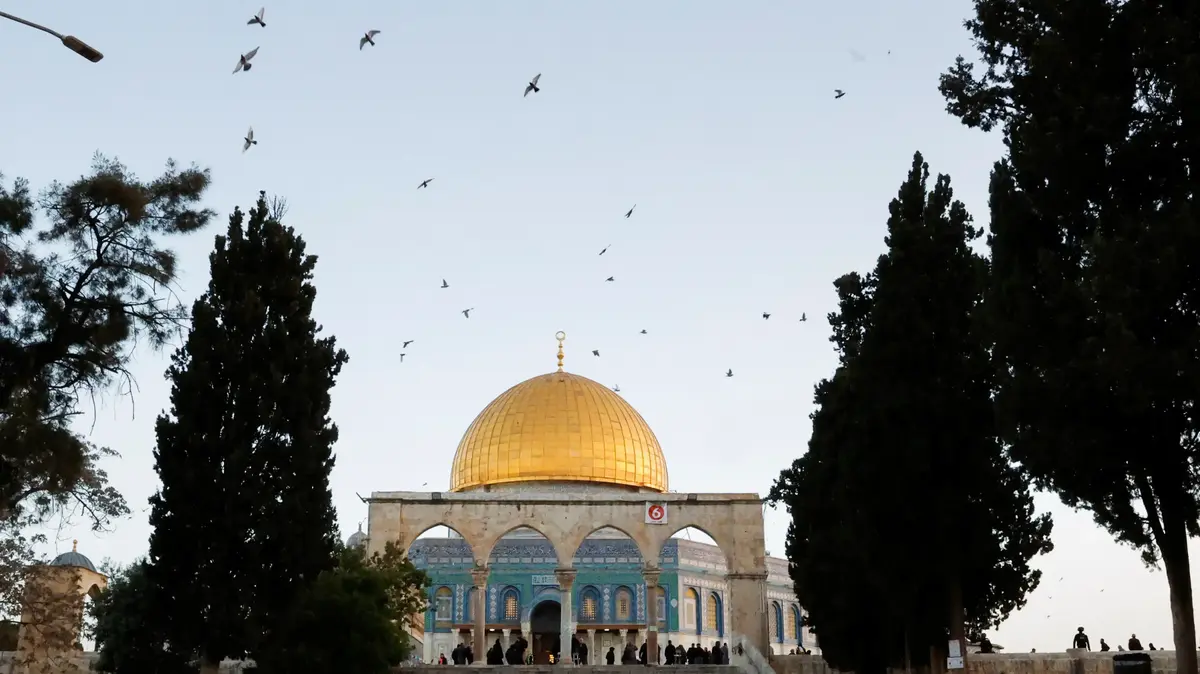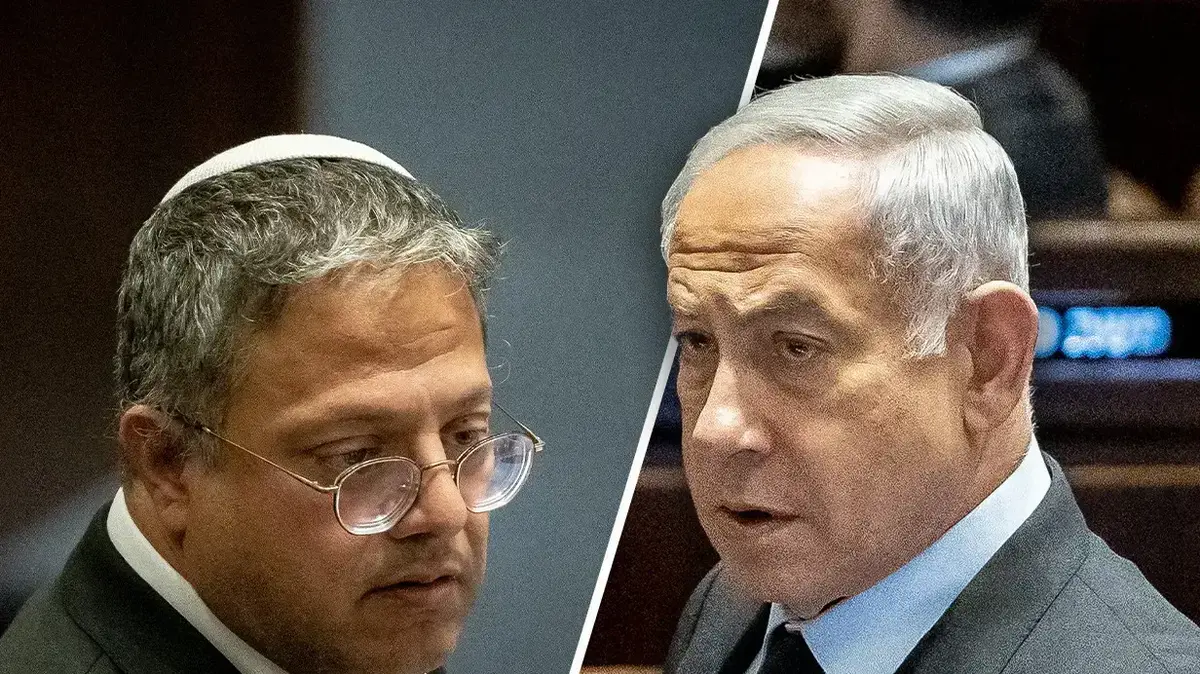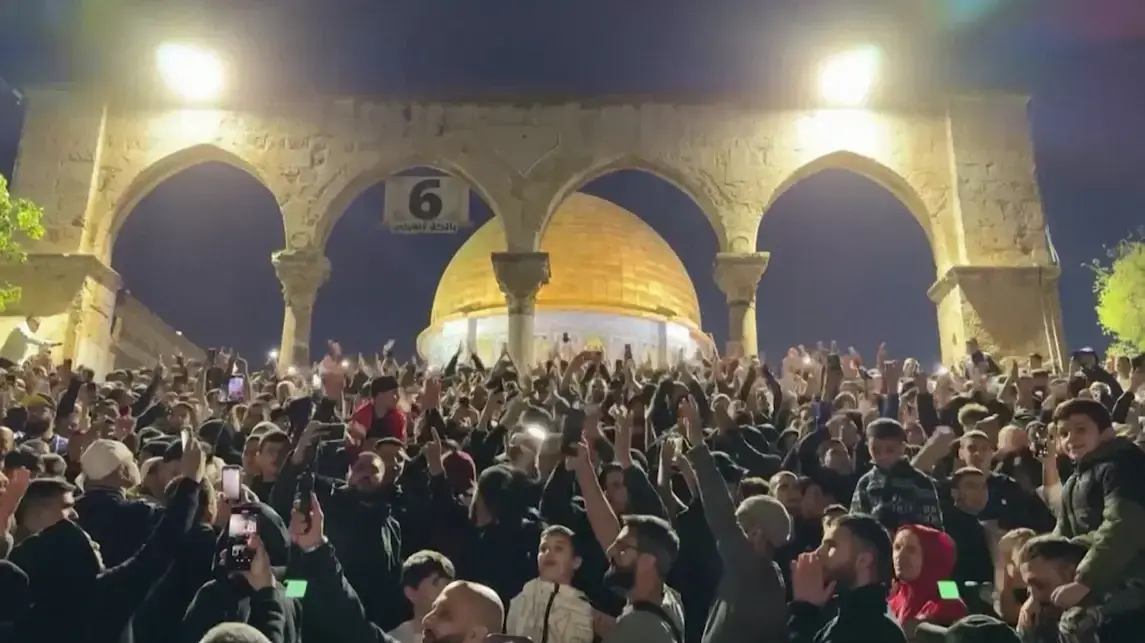Enlarge image
New minister in Netanyahu's cabinet: far-right politician Itamar Ben-Gvir
Photo: Atef Safadi/AP
His visit would "lead to an explosion," the radical Islamic Hamas had threatened.
A former prime minister had warned that his "provocation" could endanger human life.
The US Ambassador to Israel said any threat to change the status quo on the Temple Mount was unacceptable.
Nevertheless, the new Israeli Minister of National Security, Itamar Ben-Gvir, visited the Temple Mount in Jerusalem early Tuesday morning.
With this gesture, the far-right minister from the new cabinet of Israeli Prime Minister Benjamin Netanyahu, whose sixth term in office has just begun, triggered a wave of outrage.
What is the Temple Mount?
Why is visiting this sacred site so politically charged?
And is there now a threat of a new escalation in Israel?
Answers to the most important questions.
What is the Temple Mount and what is its significance for religions?
The Temple Mount is a hill located in the southeastern part of the Old City of Jerusalem.
It is a holy place for three religions: Judaism, Islam and Christianity.
The Temple Mount is particularly important for Muslims, who call it "Haram al-Sharif" - it is considered the third holiest site in Islam after Mecca and Medina.
The Dome of the Rock standing there is said to mark the place where the Prophet Mohammed once began his journey to heaven.
But the Temple Mount is also important for the Jews.
According to tradition, Solomon's and later Herodian's temples once stood in the area of al-Aqsa Mosque, which is also located on the hill.
The Wailing Wall is believed to be the remnant of the earlier Jewish temple complex, which was destroyed by the Babylonians and the Romans during ancient times.
Shortly after the last destruction of the temple complex in 70 AD, the Jewish people were expelled in the course of the Roman conquest of Jerusalem, which became traumatic for the Jews.
For Christians, on the other hand, the Temple Mount is significant because, according to the New Testament, important scenes from the life of Jesus took place there.
What are the regulations on the Temple Mount today?
Today the Temple Mount is under Muslim administration, but Israel is responsible for security.
According to an agreement with the Muslim authorities, Jews are allowed to visit the facility, but not to pray there.
The chief rabbis, like the vast majority of believing Jews, even consider it forbidden to enter the area, because it is still unclear where the sacred area of the temple was located.
However, ultranationalist Jews keep trying to pray secretly on the Temple Mount.
That's why there are often riots with many injured - for example last year, when Easter, Passover and Ramadan coincided.
The so-called status quo on the Temple Mount arose as a result of the Six Day War of 1967, during which Israel conquered East Jerusalem from Jordan and annexed it in violation of international law.
To prevent a religious war, then-Israeli Defense Minister Moshe Dayan decided that the Temple Mount should remain under the administration of Wakf, a Jordanian religious foundation.
The Israeli-Jordanian peace treaty of 1994 also reaffirmed the special role of the Jordanian royal family as guardians of the holy Muslim sites in Jerusalem.
Why is the ministerial visit so controversial?
An incident from 2000 shows how explosive the issue of the Temple Mount is: A visit by the then Israeli opposition leader Ariel Sharon from the right-wing Likud party was perceived by the Palestinians as a provocation.
The next day, Palestinians engaged in violent clashes with the Israeli police, who shot and killed several demonstrators.
This marked the beginning of the second Intifada.
Ben-Gvir's visit to the Temple Mount is also controversial because the far-right politician threatened to change the status quo both before and after the government was formed.
He called today's rule prohibiting Jews from praying on the Temple Mount racist: "I will go to the Temple Mount.
I will fight against the racism that a Jew is not allowed to drink water on the Temple Mount because he is unclean,” he said in mid-December.
And further: "That's racism, that's apartheid."
What were the reactions to the announcement of the visit?
Ben-Gvir's comments and visit have fueled Palestinian allegations that Israel is seeking to expand its control of the holy site.
A spokesman for Palestinian President Mahmoud Abbas called the visit "a provocative step against the Palestinian people."
He also called on the US government to take responsibility and force Israel to end the escalation before it was too late, reports the Israeli newspaper Haaretz.
Before the visit, the radical Islamic terrorist organization Hamas had threatened an explosion.
The US also criticized Ben-Gvir's visit.
The US Embassy in Israel stated that “Ambassador [Tom] Nides has made it very clear in discussions with the Israeli government that the status quo in the holy sites of Jerusalem must be preserved.
Actions that prevent this are unacceptable,” reports Haaretz.
Former Israeli Prime Minister Jair Lapid tweeted on Monday: "Itamar Ben-Gvir must not visit the Temple Mount, this is a provocation that will lead to violence that will endanger human lives and cost human lives."
The Jordanian Foreign Ministry also strongly condemned Ben-Gvir's visit.
It was "a provocative step" and a "blatant violation of international law," it said.
In an interview with the US broadcaster CNN, the Jordanian King Abdullah II recently referred to "red lines" with a view to the holy sites in Jerusalem.
"If people want a conflict with us, we're prepared." Other Arab states and Turkey also condemned the visit.
Who is Itamar Ben-Gvir?
Ben-Gvir of the far-right "Otzma Yehudit" party (in English: "Jewish Strength") had previously been convicted of racist hate speech and supporting a Jewish terrorist organization.
He is considered a political arsonist, especially in relation to the Palestinians.
Now he is part of Benjamin Netanyahu's new right-wing religious government, which was sworn in on Thursday in Israel.
After the visit to the Temple Mount, he tweeted: "The Israeli government, of which I am a member, will not submit to an organization of despicable murderers.
The Temple Mount is open to all, and if Hamas thinks their threats will deter me, then they must understand that times have changed.” Those who make threats must be dealt with with an “iron fist.”
MP Zvika Fogel from Ben-Gvir's party told the army broadcaster about possible Hamas rocket attacks on Israel: "If we react to it as I think we should react, then Ben-Gvir's visit to the mountain was worth it - because it will." be the last war.
After that we can all sit in peace and raise pigeons.«
col/dpa/Reuters/AFP








